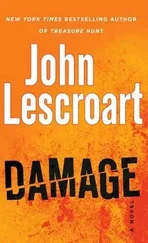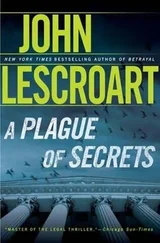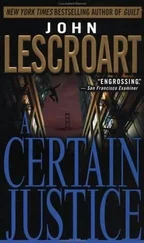I took the train the next day and walked out to the address, a little more than a mile from town. It was an old white adobe house, not too large, and extremely well kept. The owner was a Madame Giraud-Neuilly, a woman nearing seventy whose family, she said, had lived in the house for nearly a century. We spent the afternoon talking and drinking beer. I found her delightful.
Every one of my friends had warned me to beware of the French—that they were a haughty lot, supercilious, and unfriendly. But if Madame Giraud-Neuilly were any example, my friends had been wrong. I spoke French passably well, and that certainly didn’t hurt our relationship. At about 5:00, her husband, Jacques Neuilly, came home, and they invited me to stay for dinner. He showed me the wine cellar, which they hadn’t used since le père had died in the ’30s, saying I was welcome to use it for storage if I cared to clean it up. We worked out the details after dinner, and by the time I returned to Lyon the next day, I had a house. Ten days later I moved in.
Since the house was furnished, getting settled took no time at all. I spent the first month working the kinks out of my piano playing and writing daily. I took the five songs with which I’d been happiest, taped them, and sent them to New York; then I decided to take a few days off to celebrate and explore. I started with the cellar, hoping to find some old wine.
The cellar hadn’t been used for fifty years, and it looked it. Boxes were lying everywhere, covered with cobwebs. The casks lining the right wall were thick with dust. I turned one of the spigots, and it broke off. I was about to go back upstairs when I noticed something in the far corner reflecting the light from my lantern. I picked my way back and found that I’d been lucky—it was a half case of unopened wine. In the other half of the case lay a sheaf of papers, yellow and brittle, bound by twine. I lifted the whole box and brought it upstairs.
The wine was unlabeled, and I assumed that it was homemade. The sediment was thick on the bottom, and I hadn’t been careful enough in moving it. Since I had to let the wine sit for some time before decanting it, I picked up the sheaf of papers, got myself a beer, and went out to the arbor, thinking only to pass the time until the wine settled.
The papers were written in a thick Continental hand, in French, of course. After I got used to the style, I became engrossed. I read on, forgetting about the wine, until it got dark, then moved inside and finished the manuscript sitting at the kitchen table. At first I thought it a rather poor attempt at a novel, but as I read on, it appeared to be more and more genuine—a personal account of Madame Giraud-Neuilly’s father during World War I. But something else was even more interesting to me: if this were a genuine manuscript, it was proof of Arrowroot’s theory, for the Auguste Lupa of the manuscript could be none other than Holmes’s son.
The next day, I wrote to Madame Giraud-Neuilly, asking her if she could tell me anything about her father’s exploits during the war, specifically any undercover operations he might have been involved in. I then set myself to the arduous task of translating.
Within two weeks, I had my landlady’s reply. Yes, her father had been active in the war as some kind of agent. She didn’t know too much about it, though, and suggested that I question her half brother, Jean Chessal, who was living in Valence. He was a retired soldier, pushing eighty, and very reluctant to discuss anything with a nosy American. Finally, though, I persuaded him to take the manuscript. A few days later, I went to pick it up.
“Have you read it?” I asked.
“I said I would.”
“Well?”
“Well what?”
“What do you think? Is it true?”
He squinted at me through his thick glasses and scratched at his head, as if trying to understand the question.
“How would I know? I wasn’t there.”
“But your mother . . .”
“My mother was Tania Chessal before she married Jules. What does that prove?”
But of course it proved quite a lot.
I returned home to find a letter from Kevin James. I had written to him asking him to send any information he had regarding Holmes’s progeny. The letter was mostly tongue-in-cheek, but it did present several facts about Holmes’s relationships, none of which were inconsistent with anything in the manuscript. I’d been slightly bothered by the initials S. H. on Lupa’s watch, but Kevin assured me that individuals who used aliases often kept their own initials.
I became angry with myself. After some weeks of translating, I’d become convinced of the manuscript’s authenticity, with no more proof than its evident age and its conformance to Hugo Arrowroot’s pet theory. There was only one thing to do to finally satisfy myself. Accordingly, I spent most of the next few months tracking down and interviewing anyone who might have known or worked with the man who had been Auguste Lupa for the year he lived and worked in Valence during World War I. Those interviews laid to rest my every doubt.

In translating, I have tried to use contemporary Americanisms wherever possible, though in places where the meaning is clear from context, I have retained the French.
Finally, I apologize for the prose style in this prologue. I am not a prose writer by trade, and if I had not come to believe in the importance of this manuscript, I would certainly have left it where I found it, gathering dust in a wine cellar.
1
It was embarrassing, but with a war going on, embarrassment was a luxury I couldn’t permit myself.
The deep gray and cold of dawn were burning off into a pleasant morning as I walked along the Rue St. Philip in Valence, trying to piece together all I’d heard about the man I was to meet and solicit, Auguste Lupa.
We hadn’t made an appointment, but I knew where he would be, since every morning he followed a strict routine: up at eight a.m., a walk through the town garden, then a corner table at La Couronne from nine thirty until noon, drinking beer and reading newspapers, nearly always alone. During the afternoons, he would disappear for five hours—no one seemed to know where. He’d then reappear just before six, prepared to work as chef at La Couronne, where he was reputed to be a genius even in this land of chefs sans pareille . What was embarrassing was that we needed him, and I was chosen to meet him because of a weakness we shared for beer. We needed him, a chef not yet turned twenty-five, because he was the best spy in Europe.

May 18, 1915. The Huns were having a heyday, plumbing the depths to which humanity could sink. They’d already shown their disregard for treaty and commitment by marching across neutral Belgium last August, but the events of this month surprised even those of us who were supposedly inured to their perfidy. Two weeks ago, they’d torpedoed the ship Lusitania , killing hundreds of civilians, and on the battlefield at Ypres, they’d just introduced a new element into warfare, the heretofore-outlawed poison gas.
The streets of Valence were filled with red-eyed women whose sons, fathers, and brothers had left for the front, determined to repulse the German invaders.
At ten o’clock this Tuesday morning, I arrived at La Couronne and sat opposite Lupa, whom I’d never before seen. There are some men who can sit in a corner or in a room and simply disappear, blending into their surroundings. If such men make good assassins, this Lupa could never be one. He didn’t blend in at all. In fact, he very nearly commanded the entire street, sitting at his table, quietly drinking his beer.
Читать дальше














